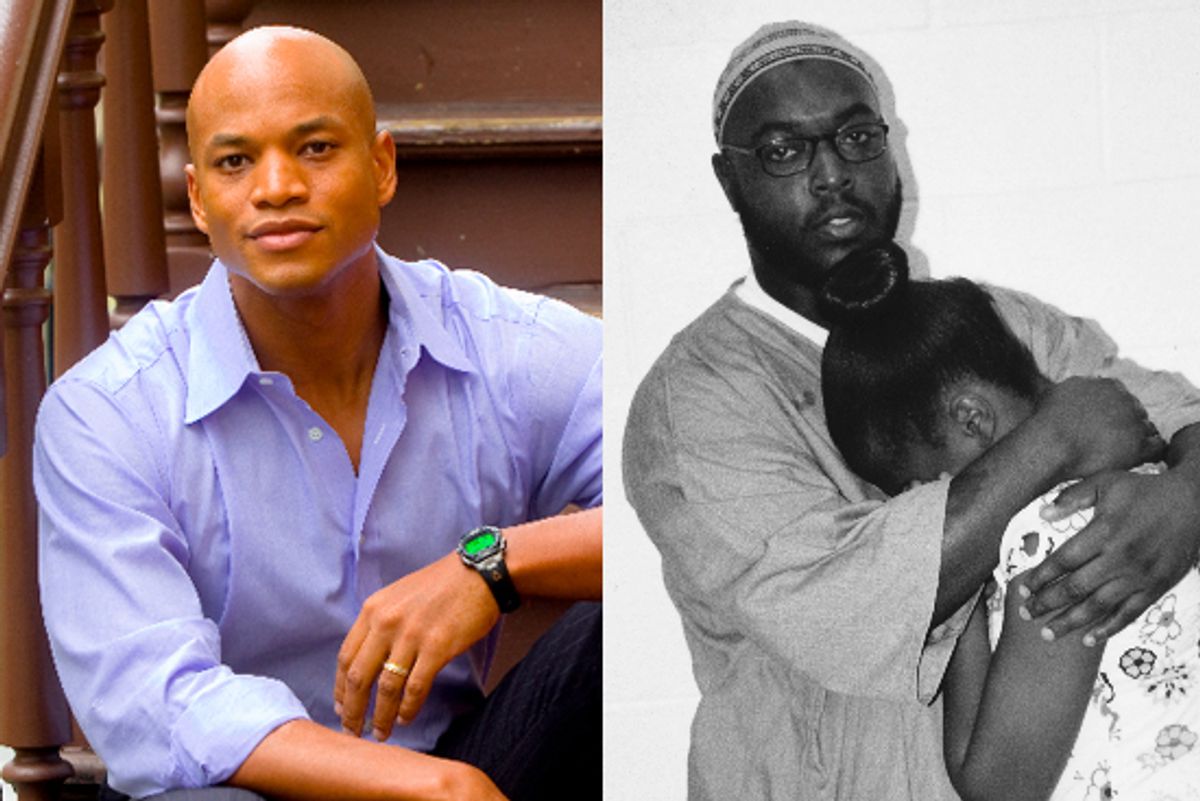The Other Wes Moore - Rough Beginnings
Both
boys in the book started their rough upbringing with the absence of fathers.
For the author Wes Moore, his father tragically passed away when he was three
years old. It was only one of two memories that he had of his father. The first
was when his father explained to him why Wes should not hit women and that he
should apologize to his sister and mother. His mother had previously chastised
him for hitting his sister, which affected her deeply due to her history of being
abused (Moore pg. 11). The second memory was Wes’ father passing away from acute
epiglottitis, a treatable virus that caused his father’s body to suffocate itself
(15). This affected Wes greatly because he idolized his father, seeing him as a
safe place and protector. Wes explained that he desired to be like his father
and emulate him, finding pride that his father considered Wes his “main man.”
For the other Wes, his father did not pass away during his childhood but was
absent from the other Wes’ life. The other Wes’ father was an alcoholic, who
did not try to be in his life except one time. When he was one, the other Wes’
father tried to see his child while drunk, screaming, and eyes bloodshot. However,
after his attempt failed, the other Wes’ never tried to see his son after that,
though his father met Wes when he was six at Wes’ grandmother’s house (24-25).
There are other examples in the book that contribute to the theme of rough beginnings. In addition to the absence of his father, the other Wes had another familial tie that had a large influence on him as well. His older brother Tony was largely into drug dealing, though he did not want his brother to go down the same path. Still, his desire for his brother was hypocritical of his lifestyle. Tony wanted to be like Wes, though Wes looked up to his older brother (26-28). Tony’s lifestyle influenced Wes, including the slogan “send a message” in case someone threatened or attacked Wes. This motto played a part when the other Wes played football roughly with his friends and some neighborhood kids. Wes’ playing style was rough, leading to an altercation with a neighborhood kid and the kid punching him bloody. Though Wes’ friend wanted him not to retaliate, his brother’s words to “send a message” flashed in his head, leading him to grab a knife to settle the score. However, he was not aware of the cops now on the scene and the desire for retaliation led to his arrest (31-34).
In the
case of Wes, after the death of his father, his family moved to the Bronx with
his grandparents after his father’s death. His mother did not want him in
public school, leading to him living in urban living but being educated in an
affluent private school. The constant changes in the author’s life and trying
to find his identity amongst the two worlds he was living in. This played a
part in his disciplinary and academic status, leading to poor grades and
reading at a second-grade level while in third grade. The author fell into an unfortunate
statistic that is used to predict the number of people who will be imprisoned
by their third-grade reading levels (53-54). These examples show how these chapters
explain the theme of rough beginnings. However, as the introduction explained,
their stories could have changed by one decision and their beginnings do not
have to dictate their outcome.






Love how clear you were in the structure of your writing. Great support and evidence as well.
ReplyDelete